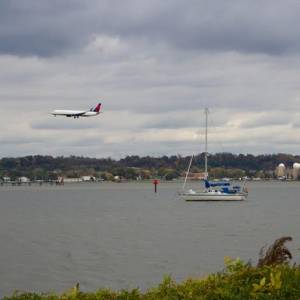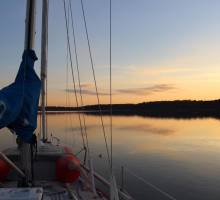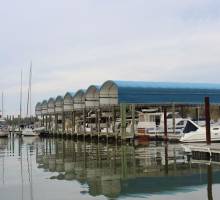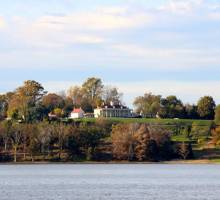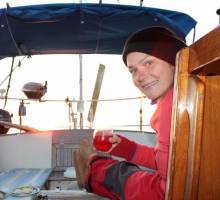
Danish SV Capibara - Survival course at sea?
If people still believed that you would improve at your workplace by spending a challenging weekend in the woods, sleeping in bivouacs, and killing your own supper, cruisers should be at a premium at the labour market, when they return home. Sometimes it’s just like the challenges are lined up waiting for you to take care of it – also even though the challenges might be self-inflicted.
We had planned to leave the Potomac River late last week, but since a storm was making its way passed the southern part of the Chesapeake Bay, we decided to stay as much out of it as we could. Henrik dropped an extra anchor, and we went down below and turned up the heat, since they had promised temperatures around freezing point. After an hour, though, the heater stopped working, and with the prospect of staying the entire weekend on a cold boat, Henrik took half the boat apart and luckily fixed the heater. A couple of hours later, the boat was warm again.
Monday morning the storm had passed, and we could finally get going. We turned on the
engine and started pulling up the anchors, when we realised – we were stuck!
We knew from when we arrived that there wasn't a lot of water underneath us, but that day the tide was apparently extraordinarily low. It took us four hours to bulldoze ourselves though the soft mud and into deeper waters, but that of course explained why we had been lying so comfortably still in the bad weather.
Right now, we’re two days away from Norfolk, where we hope to solve our cooking gas problem. As it is now, we have four empty bottles on board – and no chance of getting them refilled. Europeans use butane, while the Americans use propane, and the easiest solution would be to buy a new regulator and change from one to the other. The problem is however that American gas bottles are at least twice as big (of course) as the camping gas bottles that we use, and we don't have room for a big bottle in our safety gas container. Until we solve that problem, we just have to keep the gas bottle in the cockpit, because bread and cheese three times a day quickly becomes quite dull.
While I write this, we are fighting our way forward against the wind and the current in
Chesapeake Bay. Henrik has tried to set sail and tack our way against the headwind, but we basically just moved backwards, and in the last four hours we have sailed 6 nm. Henrik has just said that this weather is the worst: Headwind, strong current against us, and short waves.
To try to make things better, I said that it could be worse – it could rain! And 10 seconds
later it did and have done ever since. I must admit that I went down below and left Henrik to look after the boat. After all, no one anymore believes that you gain anything from a survival course.
Signe Storr - Freelance Journalist & Friend of Boatshed
